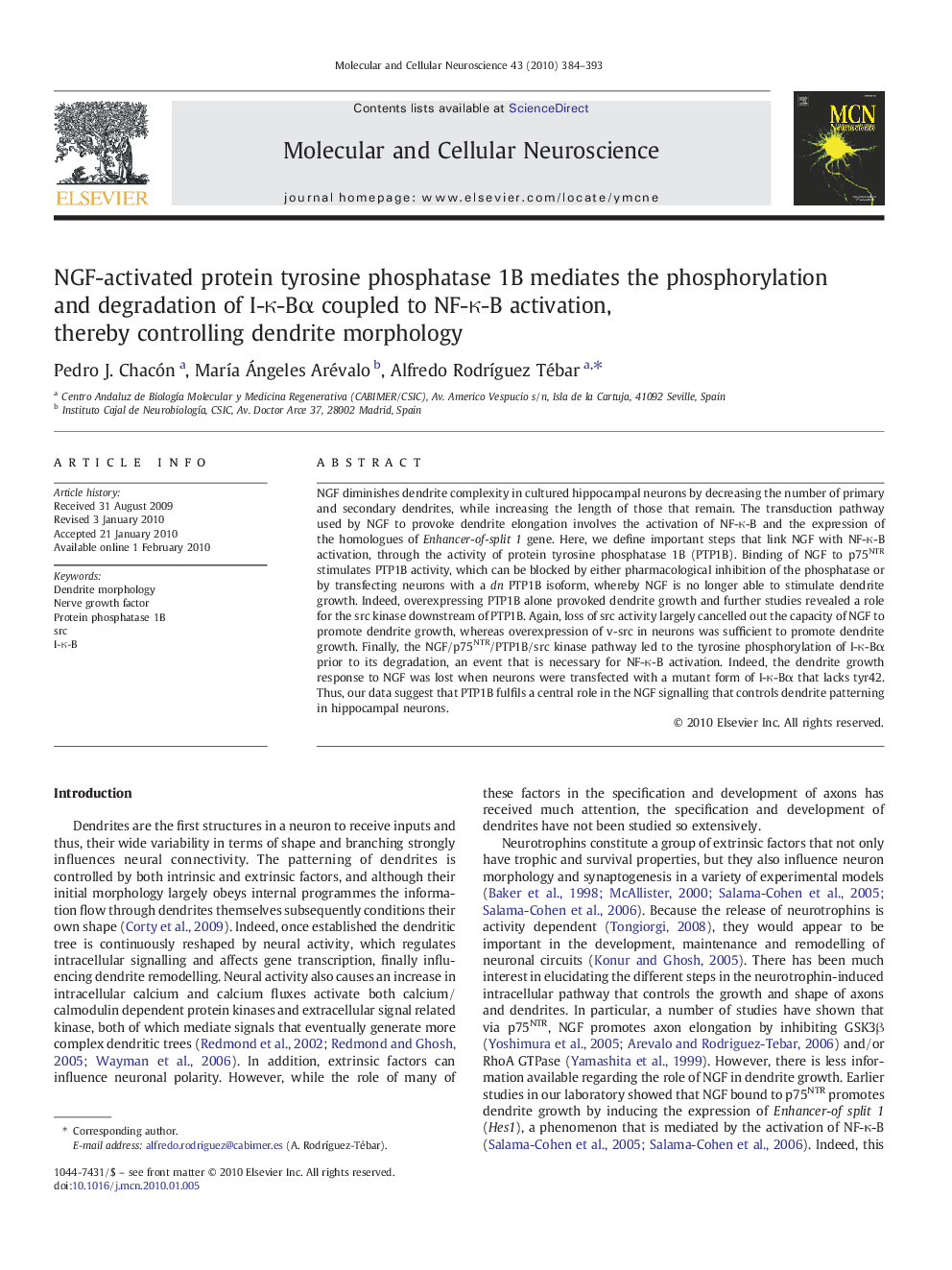| Article ID | Journal | Published Year | Pages | File Type |
|---|---|---|---|---|
| 2198791 | Molecular and Cellular Neuroscience | 2010 | 10 Pages |
NGF diminishes dendrite complexity in cultured hippocampal neurons by decreasing the number of primary and secondary dendrites, while increasing the length of those that remain. The transduction pathway used by NGF to provoke dendrite elongation involves the activation of NF-κ-B and the expression of the homologues of Enhancer-of-split 1 gene. Here, we define important steps that link NGF with NF-κ-B activation, through the activity of protein tyrosine phosphatase 1B (PTP1B). Binding of NGF to p75NTR stimulates PTP1B activity, which can be blocked by either pharmacological inhibition of the phosphatase or by transfecting neurons with a dn PTP1B isoform, whereby NGF is no longer able to stimulate dendrite growth. Indeed, overexpressing PTP1B alone provoked dendrite growth and further studies revealed a role for the src kinase downstream of PTP1B. Again, loss of src activity largely cancelled out the capacity of NGF to promote dendrite growth, whereas overexpression of v-src in neurons was sufficient to promote dendrite growth. Finally, the NGF/p75NTR/PTP1B/src kinase pathway led to the tyrosine phosphorylation of I-κ-Bα prior to its degradation, an event that is necessary for NF-κ-B activation. Indeed, the dendrite growth response to NGF was lost when neurons were transfected with a mutant form of I-κ-Bα that lacks tyr42. Thus, our data suggest that PTP1B fulfils a central role in the NGF signalling that controls dendrite patterning in hippocampal neurons.
